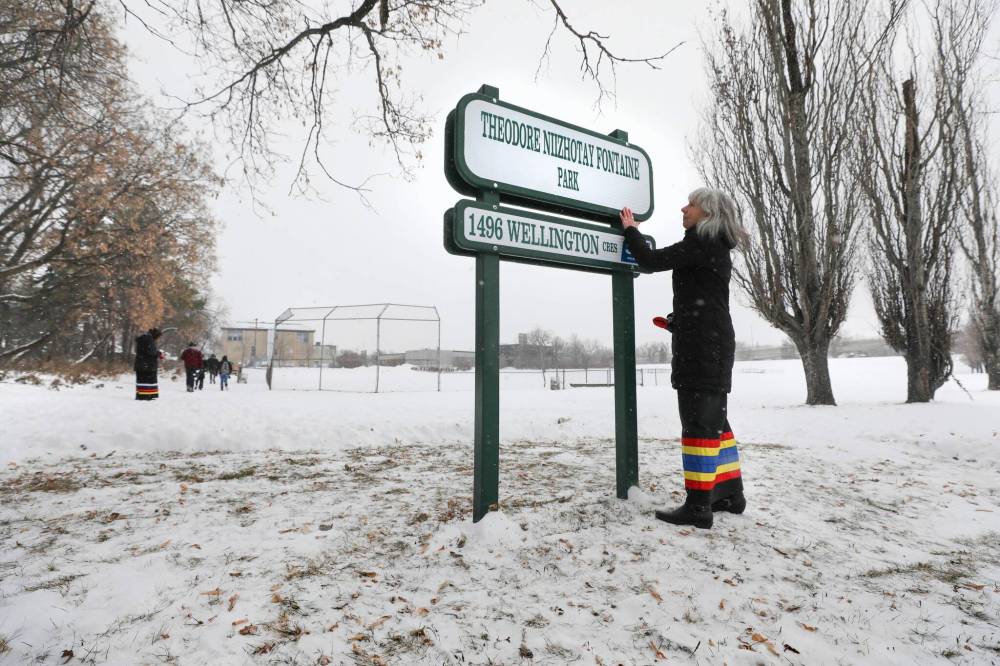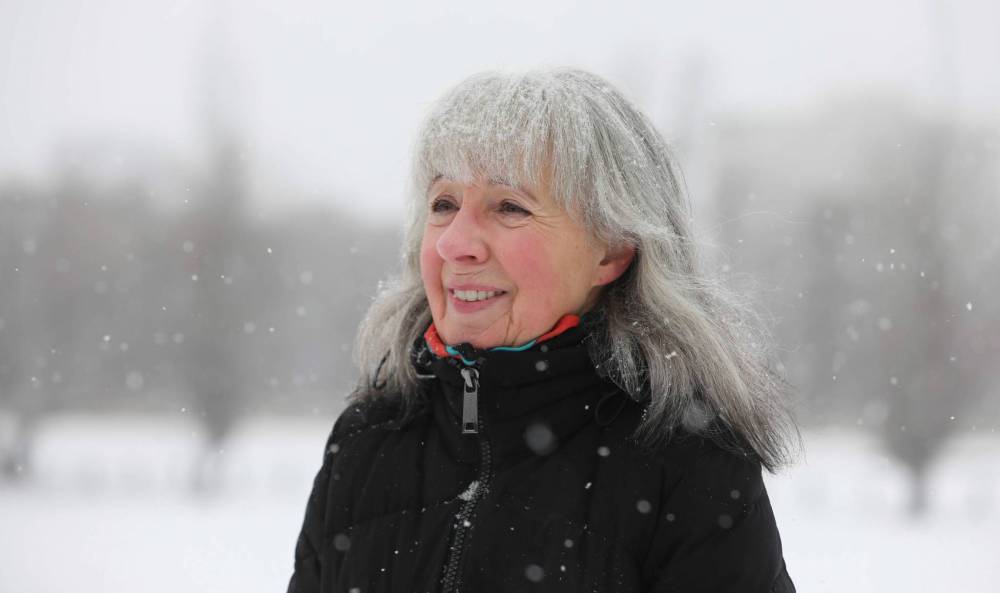Effort to rename city places, markers proves popular
Advertisement
Read this article for free:
or
Already have an account? Log in here »
To continue reading, please subscribe:
Monthly Digital Subscription
$0 for the first 4 weeks*
- Enjoy unlimited reading on winnipegfreepress.com
- Read the E-Edition, our digital replica newspaper
- Access News Break, our award-winning app
- Play interactive puzzles
*No charge for 4 weeks then price increases to the regular rate of $19.95 plus GST every four weeks. Offer available to new and qualified returning subscribers only. Cancel any time.
Monthly Digital Subscription
$4.99/week*
- Enjoy unlimited reading on winnipegfreepress.com
- Read the E-Edition, our digital replica newspaper
- Access News Break, our award-winning app
- Play interactive puzzles
*Billed as $19.95 plus GST every four weeks. Cancel any time.
To continue reading, please subscribe:
Add Free Press access to your Brandon Sun subscription for only an additional
$1 for the first 4 weeks*
*Your next subscription payment will increase by $1.00 and you will be charged $16.99 plus GST for four weeks. After four weeks, your payment will increase to $23.99 plus GST every four weeks.
Read unlimited articles for free today:
or
Already have an account? Log in here »
Hey there, time traveller!
This article was published 16/11/2022 (1154 days ago), so information in it may no longer be current.
A surge in wait times to consider requests to rename places and historical markers that negatively affect the Indigenous community is fuelled by increased demand and efforts to improve the process, said the chairwoman of the committee handling applications.
The City of Winnipeg recently posted a notice on its Welcoming Winnipeg: Reconciling our History policy web page, which notes high demand has created “a significant backlog of requests” and a delay in reviewing them. Under the policy, a committee of community members assesses naming and renaming requests for monuments, parks, buildings and trails, then makes recommendations to city council.
Reanna Merasty, chairwoman of Welcoming Winnipeg’s committee of community members, said the surge in requests began a few months ago. A few well-publicized renaming decisions helped trigger more interest in the policy, such as the recent renaming of Pan Am Pool Park to become Rooster Town Park, she said. The name change honoured Métis families who were forced out of their homes in the area several decades ago.

“Once (people) started to see the outcome of this (Welcoming Winnipeg) committee, they saw the value in it and then a lot more people started to apply for (renaming requests). I think they really got inspired by it,” said Merasty.
While she could not offer the exact number of requests waiting to be answered, Merasty said the committee’s volunteer members complete an extensive review of each one, which includes consultations with Indigenous elders, the public, a knowledge committee and language organizations.
“We wanted to make sure that it was done in a certain way, but then it resulted in a longer process… One of the key concerns is that (each new name) is an accurate translation,” she said.
Creating a dedicated budget for the committee would help cut the wait, since some renaming requests can’t be fulfilled until money is found to pay for new panels and markers, while the committee would also like to provide honorariums for elders and knowledge keepers, Merasty said.
Her comments followed an event to officially replace the name Wellington Park with Theodore Niizhotay Fontaine Park, which fulfilled one of the Welcoming Winnipeg committee’s recommendations. A prominent Indigenous leader and educator, Fontaine also attended the former Assiniboia Residential School, which was located next to the park at 1496 Wellington Cres. that now bears his name.
Fontaine was chief of Sagkeeng First Nation and executive director of the Assembly of Manitoba Chiefs. He also worked as an engineer and federal civil servant and educated others about the legacy of residential schools. He died in 2021.
During a news conference to highlight the park’s new name, Merasty described the change as a significant step forward.
“Theodore Niizhotay Fontaine Park is a significant recognition for the accomplishments and contributions that (Fontaine) made to the city, province and country and a gesture towards reconciliation,” she said. “As each (Welcoming Winnipeg) application goes forward, I am humbled to know that we are another step closer to Indigenous representation within the City of Winnipeg.”
The new name will help educate Winnipeggers about the site’s legacy, said Coun. John Orlikow.

“I grew up in the area. I didn’t know there was a residential school here. We have to… recognize the damage we’ve done and provide the pathway for… healing,” said Orlikow.
Morgan Fontaine, Theodore Fontaine’s wife, said the name change will have a lasting impact.
“It’s not just a park sign… (it’s) the lives of people coming together, building reconciliation in the city,” she said.
The City of Winnipeg’s Indigenous relations division is expected to produce a public report on the Welcoming Winnipeg committee within the next few months, including an update on the number of requests it has received and completed since 2020.
Joyanne.pursaga@freepress.mb.ca
Twitter: @joyanne_pursaga

Joyanne is city hall reporter for the Winnipeg Free Press. A reporter since 2004, she began covering politics exclusively in 2012, writing on city hall and the Manitoba Legislature for the Winnipeg Sun before joining the Free Press in early 2020. Read more about Joyanne.
Every piece of reporting Joyanne produces is reviewed by an editing team before it is posted online or published in print — part of the Free Press‘s tradition, since 1872, of producing reliable independent journalism. Read more about Free Press’s history and mandate, and learn how our newsroom operates.
Our newsroom depends on a growing audience of readers to power our journalism. If you are not a paid reader, please consider becoming a subscriber.
Our newsroom depends on its audience of readers to power our journalism. Thank you for your support.



